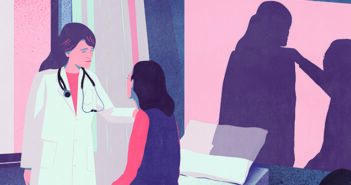The inaugural class of the Primary Care-Population Medicine program brings a system-wide perspective to patient care.
FOUR YEARS AGO, the first class of a unique, dual-degree program that integrates traditional medical education with an intensive study of the US health care system walked through the Van Wickle Gates. Now those students are ready to graduate and begin residency.
The Primary Care-Population Medicine program, the first of its kind in the nation, was developed to train med students not only to care for patients, but to consider the health of their entire patient population. They conduct thesis research and take leadership training, and after four years earn both an MD and an ScM in population medicine. The program was initially supported by a $1 million grant from the American Medical Association’s Accelerating Change in Medical Education Consortium, a collaboration among 32 medical schools to change physician training for the health systems of the 21st century.
“I knew I wanted to find a medical school … that valued that physicians are part of a broader health care system and the physician’s role in reshaping the health care system,” Jon Staloff ’14 ScM’19 MD’19 says. He was originally planning to apply to MD-MPH programs, but when he found out about PC-PM, “it just felt right.”
The Longitudinal Integrated Clerkship (LIC) sets the program apart from the typical third-year curriculum. PC-PM students spend half a day per week for several months with a physician mentor, while also following a panel of 30 patients through various health care settings to gain a feel for the patient experience and learn to advocate for patient needs. Students say getting out of the hospital and into various outpatient settings helped them build meaningful, long-term relationships with both faculty and patients.
Of the 15 students in this pioneering cohort, nine chose primary care specialties; others will bring their population medicine training to specialties such as anesthesiology, emergency medicine, surgery, and obstetrics and gynecology.
Continue reading to learn about the experiences of five graduating members of the Class of MD-ScM 2019. Click here to see this year’s full Match List. Click here for an album of Match Day photos.
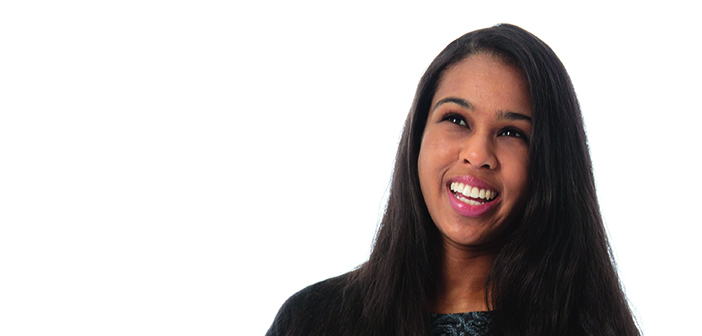
Michelle Diop ScM’19 MD’19
Diop wants to change the field of palliative and hospice care.
“My goal is to reexamine how we address suffering, death, and dying. My hope is to effect change from the individual to global level,” she says. “We need to help people think about quality of life and what it means to them earlier in the care process.”
Her interests first developed at Columbia, where Diop majored in anthropology with a focus on the experience of human suffering. During an internship in 2011, she rounded with a palliative care team. “We spoke to a man who was dying from lung cancer. He was crying, telling us that he wasn’t ready to die. It was probably one of the lowest moments of his life. The social worker just grabbed his hand and said, ‘We’re here for you,’” she says. “I felt the power of being present by the bedside, and I knew that’s what I wanted to do with my life.”
The PC-PM program helped further Diop’s passion for primary care and palliative care through research and the outpatient emphasis of the LIC. The long-term relationships with faculty like her thesis mentor, Professor of Medicine James Rudolph, MD, and peers—her “family within a family”—helped her develop her career goals while maintaining a sense of life balance.
“The PC-PM program helps you stay focused and sustained throughout med school,” she says. “It makes you the best doctor you can be so you can make a big, meaningful impact throughout medical school and beyond.”
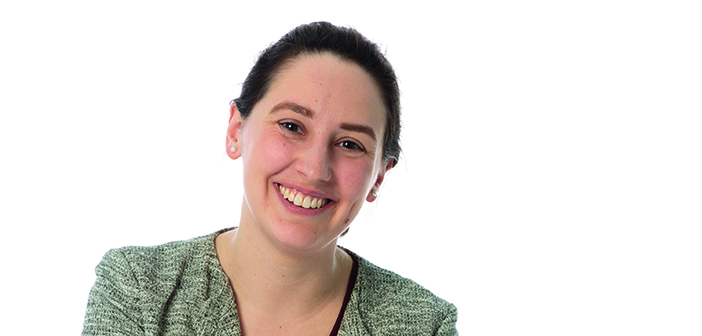
Julia Solomon ScM’19 MD’19
Solomon came to Brown with a broad perspective on health. As an economics major interested in structural inequities in health, she wanted a medical education that focused on more than the biomedical basis of disease. “What really resonated with me about PC-PM was the integration of the clinical and structural piece. It was really looking at these ideas as being a central and integral part of your education, which I wouldn’t get in any other program,” she says.
Whether it was her research looking at smoking- and obesity-related diagnoses in Rhode Island or her LIC rotation in maternal and child health, Solomon stayed true to her initial primary care interests. “In medical school, it’s very easy to get pulled into the singular. But it’s nice to be pulled back into the big picture as well, and PC-PM has helped me do that,” she says.
As a physician Solomon plans to integrate her interests in health equity and access, quality measures and outcomes, and reproductive care. “What drove me, and still drives me, is that my belief that primary care and population health are really important,” she says. “There’s a distinctive relationship that comes along with getting to know a patient over a long period of time, and I’m excited to build those relationships in the future.”
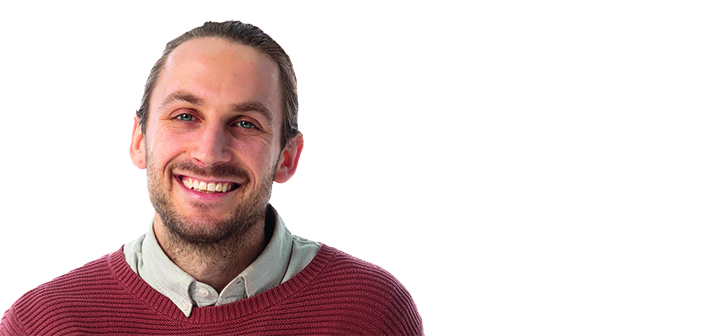
Matthew Perry ScM’19 MD’19
Perry studied abstract mathematics as an undergraduate; it wasn’t until after he graduated that he wanted to become a doctor. “I wanted my work to sit at the intersection of interpersonal care and fighting for structural change,” he says. A career in medicine would let him do both.
During his post-bacc Perry was an outreach worker for a clinic in Harlem, connecting young people who had HIV with health care as well as social, educational, and legal services. When he heard about the PC-PM program, with its emphasis on population health, community engagement, and the LIC, he knew immediately it was for him.
One of the best parts of the program, he says, are the relationships. As he decided between psychiatry and family medicine during his third year, Perry was able to have frank conversations with faculty about what he wanted out of his career—discussions that he says were invaluable to his decisions about residency and beyond.
His connections extend beyond faculty, too. “Cultivating longitudinal relationships outside of medicine is important to me, and this program gave us the space and platform to do that,” Perry says. He prioritized community partnerships and worked with Showing Up for Racial Justice RI and the AMOR Network, a grassroots community coalition that supports victims of structural violence. “Community organizing and activism will always be a part of my life and the PC-PM helped me develop a foundation on which to build that body of work,” he says.
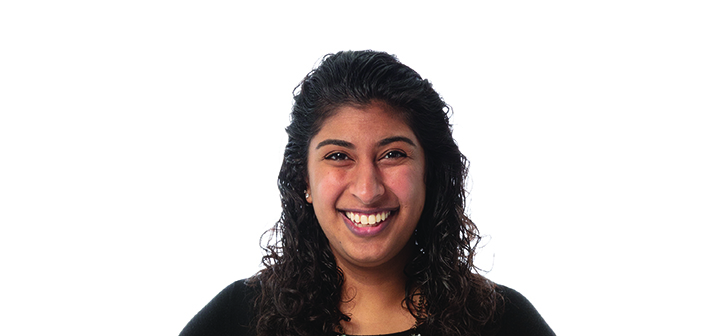
Hiba Dhanani ScM’19 MD’19
Before medical school, Dhanani worked with homeless populations, people affected by the opioid crisis, and patients at free clinics.
“I have always been someone who is interested in health care disparities, before I even knew what that word was,” she says. “I grew up in a very service-driven household, and since high school I’ve engaged in community work, particularly with the homeless community. The groups I have been a part of challenge me to address my privilege in a productive way.”
Dhanani was sure she wanted to do family medicine, but her LIC experiences changed her mind. After a surgery rotation at the Providence VA Medical Center, she realized that was the path for her. “The opportunity to intervene is really meaningful. I liked the counseling, the solutions. I didn’t expect to love it, but I did,” she says.
But she says the PC-PM program will shape how she approaches her surgery practice in a holistic, generalist way that she hopes will make her a leader in the field.
“The PC-PM program has always had a very strong vision to produce leaders in health care who are committed to restructuring health care so it’s more equitable,” Dhanani says. “They brought visionaries—people who want change, people who demand change, who want to improve people’s lives through differences in medical education, in clinical research—who think really big picture and have these great aspirations. And being part of that is special.”
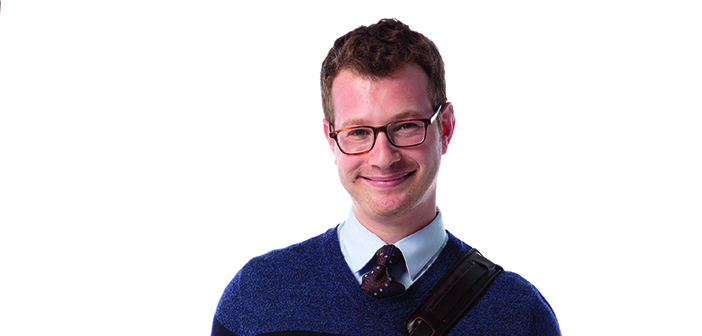
Jonathan Staloff ’14 ScM’19 MD’19
Staloff came to Brown thinking he’d concentrate in neuroscience. But in his second semester, he stumbled onto a course called “Healthcare in the U.S.”
“It gave me my first exposure to how inequitable and convoluted our health care system is,” Staloff says, who became a community health concentrator. “It was also meaningful because it was taught by a practicing physician. I started to see myself as a potentially practicing physician who cares about larger systemic problems.”
In medical school, Staloff continued building on those interests. During his second year he helped organize a 12-part guest lecture series, “Healthcare in America,” that brought health policy and other leaders to Brown from around the country. He wrote his thesis on physician understanding of accountable care organizations, a key component of the Affordable Care Act.
“The faculty here supported me in my broader interests and also helped me grow as a teacher of health care policy,” says Staloff, who taught an elective on health care policy for his fellow fourth-year med students. “These are things I never could have taken on without the support of the PC-PM program.”
Staloff says no matter what medical school a student attends, there will always be compelling incentives to pursue subspecialty fields. But “what was really special about PC-PM was that developing primary care physicians who think about population health and population medicine was supported, encouraged, and valued,” he says. “I’m just not sure I’d find that elsewhere.”


